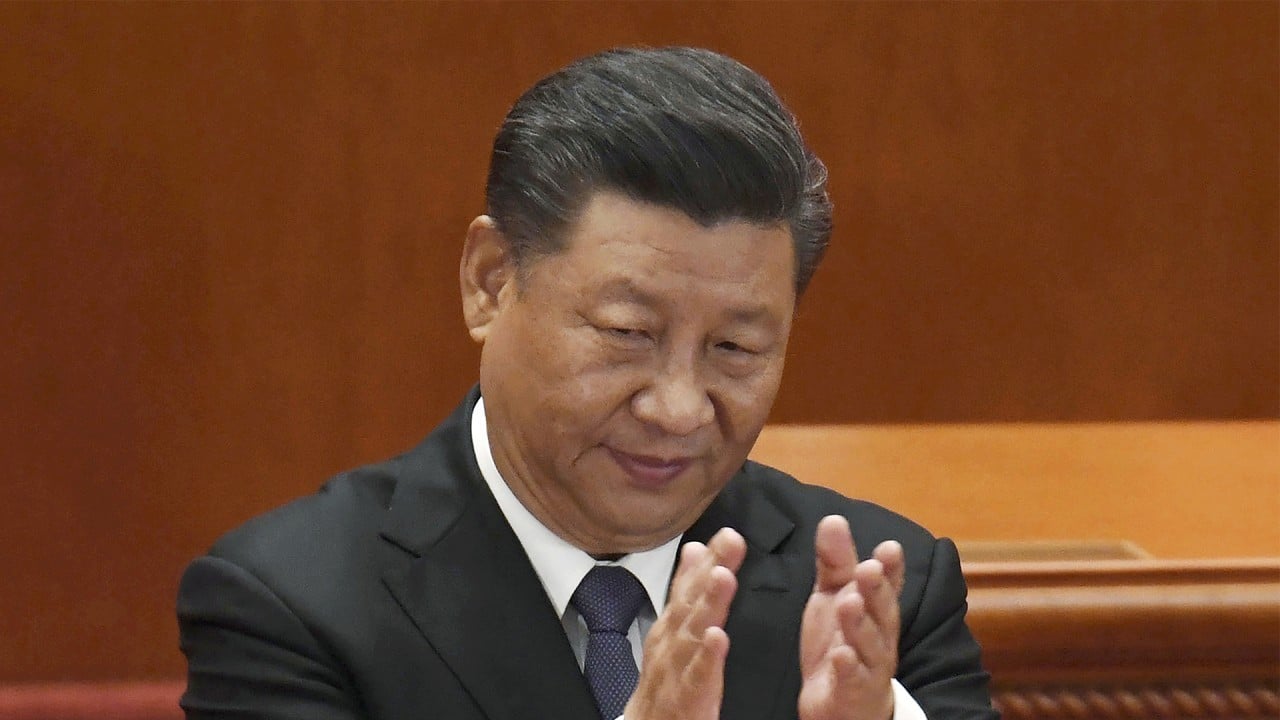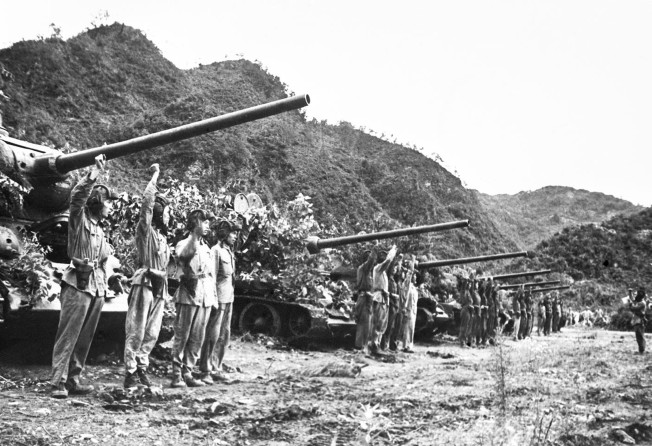
01:16
Xi Jinping says ‘Chinese people will not bend’ in Korean war anniversary speech

The propaganda being issued by the Chinese Communist Party on the 70th anniversary of the start of the Korean war – the country’s only armed conflict with the United States – no longer fits its status as a global power, observers say.
In recent days, state media has been awash with nationalistic programmes about China’s victories in the face of “American oppression” during the 1950-53 conflict.
A documentary aired by state broadcaster CCTV described it as a “war to resist America and aid Korea”.
It was also a defensive move to “protect the motherland” after the US deployed naval forces to the Taiwan Strait two days after the war started.

01:16
Xi Jinping says ‘Chinese people will not bend’ in Korean war anniversary speech
But experts say even a domestic audience is becoming less likely to swallow such a one-sided message.
“Today’s China and the international environment are completely different from the time of the opium war, Japanese war and Korean war, because China is now the world’s second-largest economy,” said Zhao Ma, a Korean war expert at Washington University in St Louis.
“China’s mission should not be to rid itself of earlier humiliations, but to integrate with the international system and bear more responsibility as a superpower.”
The Communist Party’s attempts to portray China as a “victim” and underline its legitimacy to rule stemmed from an ancient desire to “wipe out the humiliation” the country had suffered in the past, Ma said.
“But that will not help Chinese citizens’ integration with the international community.”
Collin Koh Swee Lean, a research fellow at the Institute of Defence and Strategic Studies in Singapore, said Beijing’s efforts to use the Korean war anniversary to promote an anti-American sentiment at home would achieve little besides further damaging China-US relations.
“The invocation of a Korean war analogy could serve to reinforce Trump’s “Red China” narrative and help to perpetuate a cold war mentality that Beijing has been telling Washington to abandon,” he said.
Ma said that the anti-US propaganda used at the time of the Korean war was intended to inspire and motivate young Chinese on the battlefield. But such tactics were no longer appropriate.
“China-US relations are slipping towards a new cold war … so Beijing should try to use some restraint,” he said.
On Friday, Chinese President Xi Jinping described the US at the time of the Korean war as an “imperialist invader expanding the flames of war to China’s doorstep”. But the conflict, he said, showed how the Chinese people were able to “shatter the American military’s myth of invincibility”.
“We will never sit back and watch any damage to our national sovereignty,” he said. “We will never allow any force to invade or divide the sacred territory of the motherland.”
During a visit on Monday to an exhibition in Beijing to commemorate the Korean war, Xi urged the Chinese people to “keep their faith in ultimate victory”, saying the spirit forged during the conflict war would inspire them to “prevail over all enemies”.
He said the Communist Party’s decision to enter the war 70 years ago was made to “safeguard peace and resist aggression”, Xinhua reported.
Chen Daoyin, an independent political scientist based in Shanghai, said Xi was trying to show – both to the US and the Chinese public – how the country was now more powerful and better prepared to cope with a conflict on any front.
“China is facing lots of potential conflict areas,” he said. “But these days it is as confident as Germany was before the first world war, or Japan in 1941.”
Deng Yuwen, a former deputy editor of Study Times, the official journal of the Communist Party school, who now lives in the US, said Xi was “more confident about guiding a stronger and more powerful country to cope with a smokeless war with the US in diplomatic, economic and other fields.”